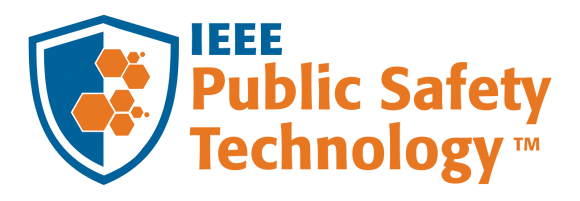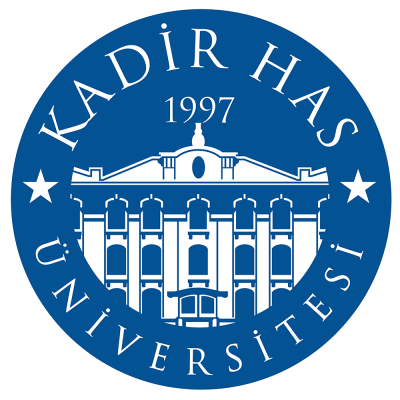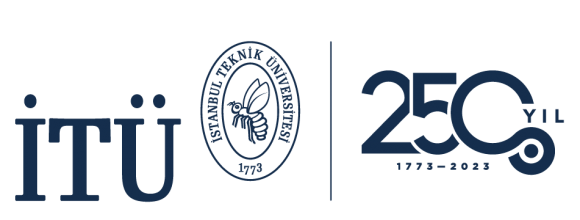* All times are indicated for LOCAL TIME ZONE ISTANBUL – (CEST+1 and GMT+3)
PANEL 1:
Emerging Technologies for Earthquake Search and Rescue Operations
- Mehmet Ulema, IEEE Public Safety Technology Initiative Co-Chair, Professor, Manhattan College, USA
- Doug Zuckerman, IEEE Public Safety Technology Initiative Co-Chair, Senior Research Scientist (Retired), Telcordia Technologies, USA
Abstract
In the wake of the recent devastating earthquake in southern Turkey, this panel will focus on emerging technologies that are poised to improve the effectiveness of public safety personnel in responding to and recovering from earthquakes. These technologies include but not limited to:
- Carbon dioxide detectors thermal imaging equipment, Sensitive sound equipment, and tiny video devices to detect movement within buildings, and to locate people under the rubble,
- Emerging satellite systems, GPS, geographic information system (GIS), remote sensing technology, and drones equipped with cameras to map the disaster by generating orthomosaics (overlapping photos) which can divide up an area for a search and seeing the progress of the search and rescue effort
- Artificial Intelligence for pattern recognition for early prediction of earthquakes,
- Blockchain-based supply and resource management for search and rescue operations,
- 5G emergency rescue system integrated with AI, AR and VR by providing reliable communication, flexible deployment, and real-time access to critical information including live video feeds and venue floor plans for navigation and situational awareness
- 5G networks with low latencies (<10ms) to provide bi-directional real-time heads up displays to aid collaboration between front line first responders and other public safety personnel
- 6G technology to massively upgrade situational awareness for public safety agencies
These technologies, especially from multiple vendors with a multiplicity of SW/HW platforms, are most effective when they work together. To achieve this interoperability, standards play a critical role in public safety operations and management. This panel features top experts who will share their thoughts on using emerging technologies as well as standardization of them in earthquake search and rescue operations.
Panelists
- Faruk Bozkurt from Ericsson, Türkiye
- Alexander Gelman, NETovations, USA
- Aryan Kaushik, University of Sussex, UK
- Mehmet Ulema, Manhattan College, USA
Biographies
Faruk Bozkurt from Ericsson, Türkiye
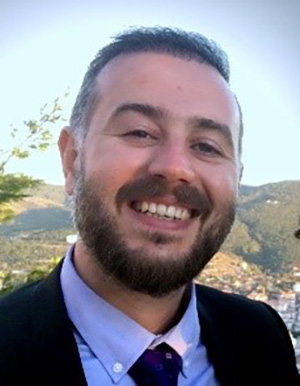 Faruk Bozkurt is a Radio Solution Architect in Ericsson, covering the Turkish ICT Market. He had taken roles in Ericsson about Radio Access Network Design, Optimization, Performance Management, Acceptance, Project Management and Technical Consultancy for 13 years. His main subject is broadband access technologies and the realization of Radio Access Networks. He was involved in 25 projects in 8 different countries in the Middle East and East Asia.
Faruk Bozkurt is a Radio Solution Architect in Ericsson, covering the Turkish ICT Market. He had taken roles in Ericsson about Radio Access Network Design, Optimization, Performance Management, Acceptance, Project Management and Technical Consultancy for 13 years. His main subject is broadband access technologies and the realization of Radio Access Networks. He was involved in 25 projects in 8 different countries in the Middle East and East Asia.
Alexander D. Gelman, NETovations, USA
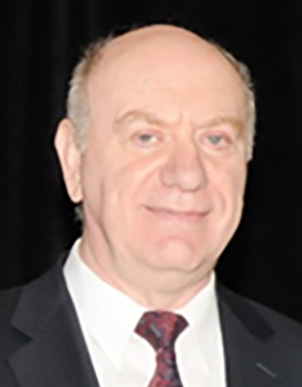 Dr. Gelman is an IEEE Life Fellow. He received M.E. and Ph.D. (EE) from the City University of New York. Presently he is CTO of NETovations Consulting Group. During 1998-2007 Alex was the Chief Scientist of Panasonic Research Laboratory located in Princeton NJ and San Jose Ca; during 1984-1998 worked at Bell Communications Research (Bellcore), lastly as Director-Internet Access Architectures Research. Alex has numerous publications and several patents. He pioneered Multimedia Multi-point communications, Streaming Video over Networks, XDSL-based Internet Access. Alex co-founded eight IEEE conferences and two publications; initiated ComSoc Standards Activities; initiated ComSoc Technical Committee and standardization in Power Line Communications and IEEE standardization in the area of cognitive radio; chaired the Technical Committee on Multimedia Communications; served four terms as ComSoc Vice President, e.g. was elected as ComSoc’s first Vice President-Standards Activities. Alex served two terms on IEEE SA BoG, e.g. as Vice President-Technical Innovation and Engagement; served several terms on IEEE SA Standards Board, e.g. representing TAB; chaired TAB Ad Hoc Committee on Standards in 2008 and served as the Inaugural Vice-chair of the TAB committee on Standards in 2018.Presently Alex is a chair of the IEEE Access and Core Networks Standards Committee, Vice Chair of the IEEE SA Fellow Nominations Support Committee, co-chair of the Standardization Building Blocks Working Groups of the FDC INGR Initiative. Alex is a recipient of ComSoc Donald McLellan Meritorious Service Award, IEEE SA Corporate Standards Sponsor Award and IEEE SA Standards Medallion.
Dr. Gelman is an IEEE Life Fellow. He received M.E. and Ph.D. (EE) from the City University of New York. Presently he is CTO of NETovations Consulting Group. During 1998-2007 Alex was the Chief Scientist of Panasonic Research Laboratory located in Princeton NJ and San Jose Ca; during 1984-1998 worked at Bell Communications Research (Bellcore), lastly as Director-Internet Access Architectures Research. Alex has numerous publications and several patents. He pioneered Multimedia Multi-point communications, Streaming Video over Networks, XDSL-based Internet Access. Alex co-founded eight IEEE conferences and two publications; initiated ComSoc Standards Activities; initiated ComSoc Technical Committee and standardization in Power Line Communications and IEEE standardization in the area of cognitive radio; chaired the Technical Committee on Multimedia Communications; served four terms as ComSoc Vice President, e.g. was elected as ComSoc’s first Vice President-Standards Activities. Alex served two terms on IEEE SA BoG, e.g. as Vice President-Technical Innovation and Engagement; served several terms on IEEE SA Standards Board, e.g. representing TAB; chaired TAB Ad Hoc Committee on Standards in 2008 and served as the Inaugural Vice-chair of the TAB committee on Standards in 2018.Presently Alex is a chair of the IEEE Access and Core Networks Standards Committee, Vice Chair of the IEEE SA Fellow Nominations Support Committee, co-chair of the Standardization Building Blocks Working Groups of the FDC INGR Initiative. Alex is a recipient of ComSoc Donald McLellan Meritorious Service Award, IEEE SA Corporate Standards Sponsor Award and IEEE SA Standards Medallion.
Aryan Kaushik, University of Sussex, UK,
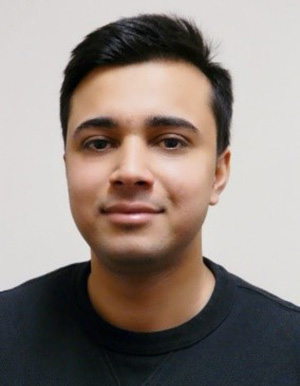 Dr. Kaushik is an Assistant Professor at the University of Sussex, UK. Prior to that, he has been with University College London, UK, from 2020-21, University of Edinburgh, UK, from 2015-19, and Hong Kong University of Science and Technology, Hong Kong, from 2014-15. He has held visiting appointments at Imperial College London, UK, University of Luxembourg, Luxembourg, Beihang University, China, and Athena RC, Greece. He has been involved as research lead in UK MOD, DSTL, DASA and EPSRC funded projects on integrated sensing and communications including UK-wide UDRC consortium, PI in UKRI HEIF supported project in green and autonomous UAVs and Sussex-ROF funded project on integrated sensing and communications, and many other collaborative projects. He is an Associate Editor of the IEEE Open Journal of the Communications Society, IEEE Communications Letters, IET Signal Processing and IET Networks, and Lead Guest Editor for several Special Issues at IEEE and IET journals. He has been Track Chair for IEEE ICC 2024 and IEEE WCNC 2023, Tutorial/Invited Speaker at several IEEE conferences and workshops such as IEEE WCNC 2023 conference and workshop, WiSPNET 2023, and General Chair for workshops at conferences such as IEEE WCNC 2023, IEEE PIMRC 2022 and IEEE SECON 2022. His research interests are in signal processing for 6G ommunications, integrated sensing & communications, RIS & holographic surfaces, mmWave MIMO & satellite communication networks.
Dr. Kaushik is an Assistant Professor at the University of Sussex, UK. Prior to that, he has been with University College London, UK, from 2020-21, University of Edinburgh, UK, from 2015-19, and Hong Kong University of Science and Technology, Hong Kong, from 2014-15. He has held visiting appointments at Imperial College London, UK, University of Luxembourg, Luxembourg, Beihang University, China, and Athena RC, Greece. He has been involved as research lead in UK MOD, DSTL, DASA and EPSRC funded projects on integrated sensing and communications including UK-wide UDRC consortium, PI in UKRI HEIF supported project in green and autonomous UAVs and Sussex-ROF funded project on integrated sensing and communications, and many other collaborative projects. He is an Associate Editor of the IEEE Open Journal of the Communications Society, IEEE Communications Letters, IET Signal Processing and IET Networks, and Lead Guest Editor for several Special Issues at IEEE and IET journals. He has been Track Chair for IEEE ICC 2024 and IEEE WCNC 2023, Tutorial/Invited Speaker at several IEEE conferences and workshops such as IEEE WCNC 2023 conference and workshop, WiSPNET 2023, and General Chair for workshops at conferences such as IEEE WCNC 2023, IEEE PIMRC 2022 and IEEE SECON 2022. His research interests are in signal processing for 6G ommunications, integrated sensing & communications, RIS & holographic surfaces, mmWave MIMO & satellite communication networks.
Mehmet Ulema, Manhattan College, USA
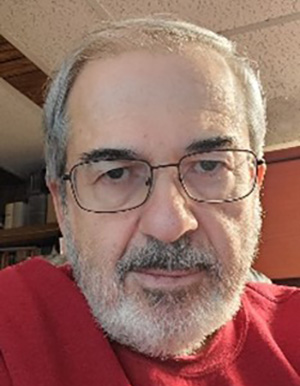 Dr. Mehmet Ulema is a professor of Computer Information Systems at Manhattan College, New York. Previously, he held management and technical positions in AT&T Bell Laboratories, Bellcore, and Daewoo Telecom. He has been on the editorial board of a number of journals. He is also the co-editor of a IEEE Press-Wiley book series on Network and Service Management. Dr. Ulema is the author of a book entitled “Fundamentals of Public Safety Networks and Critical Communications” published by Wiley. Mehmet was actively involved in standardization in ITU, TIA, ATIS, and IEEE. Currently, he is a member of IEEE Standards Association Board of Governors. He is also a co-chair of the IEEE Public Safety Technology Initiative. Dr. Ulema had leading roles in numerous IEEE ComSoc conferences including IEEE ICC, GLOBECOM, NOMS. He is a co-founder of IEEE BlackSeaCom conference series. Dr. Ulema has received a number of awards including IEEE SA Standards Medallion award and IEEE ComSoc Harold Sobol Award. Dr. Ulema holds MS and Ph.D. degrees in Computer Science at Polytechnic University (now the New York University Tandon School of Engineering). He also received BS and MS degrees at Istanbul Technical University.
Dr. Mehmet Ulema is a professor of Computer Information Systems at Manhattan College, New York. Previously, he held management and technical positions in AT&T Bell Laboratories, Bellcore, and Daewoo Telecom. He has been on the editorial board of a number of journals. He is also the co-editor of a IEEE Press-Wiley book series on Network and Service Management. Dr. Ulema is the author of a book entitled “Fundamentals of Public Safety Networks and Critical Communications” published by Wiley. Mehmet was actively involved in standardization in ITU, TIA, ATIS, and IEEE. Currently, he is a member of IEEE Standards Association Board of Governors. He is also a co-chair of the IEEE Public Safety Technology Initiative. Dr. Ulema had leading roles in numerous IEEE ComSoc conferences including IEEE ICC, GLOBECOM, NOMS. He is a co-founder of IEEE BlackSeaCom conference series. Dr. Ulema has received a number of awards including IEEE SA Standards Medallion award and IEEE ComSoc Harold Sobol Award. Dr. Ulema holds MS and Ph.D. degrees in Computer Science at Polytechnic University (now the New York University Tandon School of Engineering). He also received BS and MS degrees at Istanbul Technical University.
Panel 2: Broader Impacts of 6G Networking
Abstract
Panelists
-
Dr. Gürkan Gür from ZHAW School of Engineering, Zürih, Switzerland
-
Dr. Didem Kıvanç Türeli from Istanbul Okan University, Istanbul, Turkiye
-
Prof. Henning Schulzrinne from Columbia University, New York
-
Işıl Yalçın, CEO from Ericsson, Istanbul, Turkiye
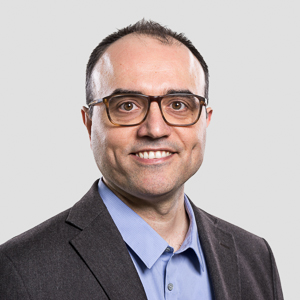 Dr. Gürkan Gür is a senior lecturer at Zurich University of Applied Sciences (ZHAW) InIT - Information Security Group in Winterthur, Switzerland. He received his B.S. degree in electrical and electronics engineering in 2001 and a Ph.D. degree in computer engineering in 2013 from Bogazici University in Istanbul, Turkey. His research interests include Future Internet, 5G and Beyond networks, information security, and nonterrestrial networks. He has two patents (one in the US, one in TR) and published more than 80 academic works. He has been involved in various European Horizon 2020, ITEA, and CELTIC, as well as national Innosuisse and TUBITAK (TR) research projects as senior researcher, project coordinator, and academic consultant. He is a senior member of IEEE and a member of ACM.
Dr. Gürkan Gür is a senior lecturer at Zurich University of Applied Sciences (ZHAW) InIT - Information Security Group in Winterthur, Switzerland. He received his B.S. degree in electrical and electronics engineering in 2001 and a Ph.D. degree in computer engineering in 2013 from Bogazici University in Istanbul, Turkey. His research interests include Future Internet, 5G and Beyond networks, information security, and nonterrestrial networks. He has two patents (one in the US, one in TR) and published more than 80 academic works. He has been involved in various European Horizon 2020, ITEA, and CELTIC, as well as national Innosuisse and TUBITAK (TR) research projects as senior researcher, project coordinator, and academic consultant. He is a senior member of IEEE and a member of ACM.
Dr. Didem Kıvanç Türeli, Istanbul Okan University, Istanbul, Turkiye
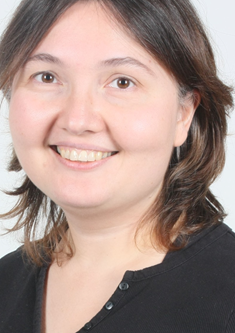 Didem Kıvanç Türeli completed her B.S. in Electrical Engineering at Boğaziçi University, her M.S. at the University of Surrey and her Ph.D. at the University of Washington. From 2008 to 2011 she was was with the ECE Department at WVU Institute of Technology. She has been an Assistant Professor at Istanbul Okan University since 2011. Her research interests are in wireless communication for cellular and IoT systems.
Didem Kıvanç Türeli completed her B.S. in Electrical Engineering at Boğaziçi University, her M.S. at the University of Surrey and her Ph.D. at the University of Washington. From 2008 to 2011 she was was with the ECE Department at WVU Institute of Technology. She has been an Assistant Professor at Istanbul Okan University since 2011. Her research interests are in wireless communication for cellular and IoT systems.
Prof. Henning Schulzrinne, Columbia University, New York
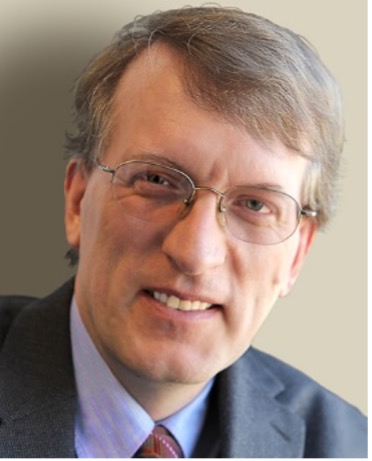 Professor Henning Schulzrinne received his undergraduate degree in economics and electrical engineering from the Darmstadt University of Technology, Germany, his MSEE degree as a Fulbright scholar from the University of Cincinnati, Ohio, and his Ph.D. degree from the University of Massachusetts in Amherst, Massachusetts. He was a member of technical staff at AT&T Bell Laboratories, Murray Hill, and an associate department head at GMD-Fokus (Berlin), before joining the computer science and electrical engineering departments at Columbia University, New York. He is currently chair of the Department of Computer Science. He is a division editor of the Journal of Communications and Networks, and an editor of the IEEE/ACM Transactions on Networking, and the Surveys and Tutorials, and former editor of the IEEE Internet Computing Magazine and IEEE Transactions on Image Processing. He is general chair of ACM Multimedia 2004. He has been a member of the board of governors of the IEEE Communications Society and of the ACM SIGCOMM executive committee, former chair of the IEEE Communications Society Technical Committees on Computer Communications and the Internet and has served as technical program chair of Global Internet, Infocom, NOSSDAV and IPtel. He also was a member of the IAB (Internet Architecture Board). Protocols codeveloped by him are now Internet standards used by almost all Internet telephony and multimedia applications. His research interests include Internet multimedia systems, quality of service, and performance evaluation. He serves as chief scientist for SIPquest, Inc. and was a former chief scientific advisor for Ubiquity Software Corporation. He is a fellow of the IEEE and has received the New York City Mayor's Award for Excellence in Science and Technology and the VON Pioneer Award.
Professor Henning Schulzrinne received his undergraduate degree in economics and electrical engineering from the Darmstadt University of Technology, Germany, his MSEE degree as a Fulbright scholar from the University of Cincinnati, Ohio, and his Ph.D. degree from the University of Massachusetts in Amherst, Massachusetts. He was a member of technical staff at AT&T Bell Laboratories, Murray Hill, and an associate department head at GMD-Fokus (Berlin), before joining the computer science and electrical engineering departments at Columbia University, New York. He is currently chair of the Department of Computer Science. He is a division editor of the Journal of Communications and Networks, and an editor of the IEEE/ACM Transactions on Networking, and the Surveys and Tutorials, and former editor of the IEEE Internet Computing Magazine and IEEE Transactions on Image Processing. He is general chair of ACM Multimedia 2004. He has been a member of the board of governors of the IEEE Communications Society and of the ACM SIGCOMM executive committee, former chair of the IEEE Communications Society Technical Committees on Computer Communications and the Internet and has served as technical program chair of Global Internet, Infocom, NOSSDAV and IPtel. He also was a member of the IAB (Internet Architecture Board). Protocols codeveloped by him are now Internet standards used by almost all Internet telephony and multimedia applications. His research interests include Internet multimedia systems, quality of service, and performance evaluation. He serves as chief scientist for SIPquest, Inc. and was a former chief scientific advisor for Ubiquity Software Corporation. He is a fellow of the IEEE and has received the New York City Mayor's Award for Excellence in Science and Technology and the VON Pioneer Award.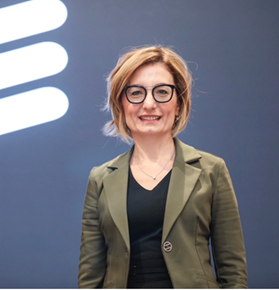 Işıl Yalçın has more than 25 years of experience in telecommunication technologies. She worked in various executive roles in Russia, the Middle East, and African markets. Prior to her current role as President of Ericsson Türkiye, she was responsible for markets in Northeast Africa – Egypt, Sudan, South Sudan, Eritrea, Ethiopia, Djibouti, and Somalia, based in Egypt. Işıl Yalçın holds a Bachelor of Science degree in Electronics & Telecommunication Engineering and a Master of Science degree in Telecommunication Engineering from Istanbul Technical University. She joined several executive programs at Stanford, Boston, and Wharton Universities. Currently, she is working as the Head of Ericsson Türkiye. Ms. Yalçın is married with two kids and enjoys doing Pilates and spending time with their dog – Benji.
Işıl Yalçın has more than 25 years of experience in telecommunication technologies. She worked in various executive roles in Russia, the Middle East, and African markets. Prior to her current role as President of Ericsson Türkiye, she was responsible for markets in Northeast Africa – Egypt, Sudan, South Sudan, Eritrea, Ethiopia, Djibouti, and Somalia, based in Egypt. Işıl Yalçın holds a Bachelor of Science degree in Electronics & Telecommunication Engineering and a Master of Science degree in Telecommunication Engineering from Istanbul Technical University. She joined several executive programs at Stanford, Boston, and Wharton Universities. Currently, she is working as the Head of Ericsson Türkiye. Ms. Yalçın is married with two kids and enjoys doing Pilates and spending time with their dog – Benji.


